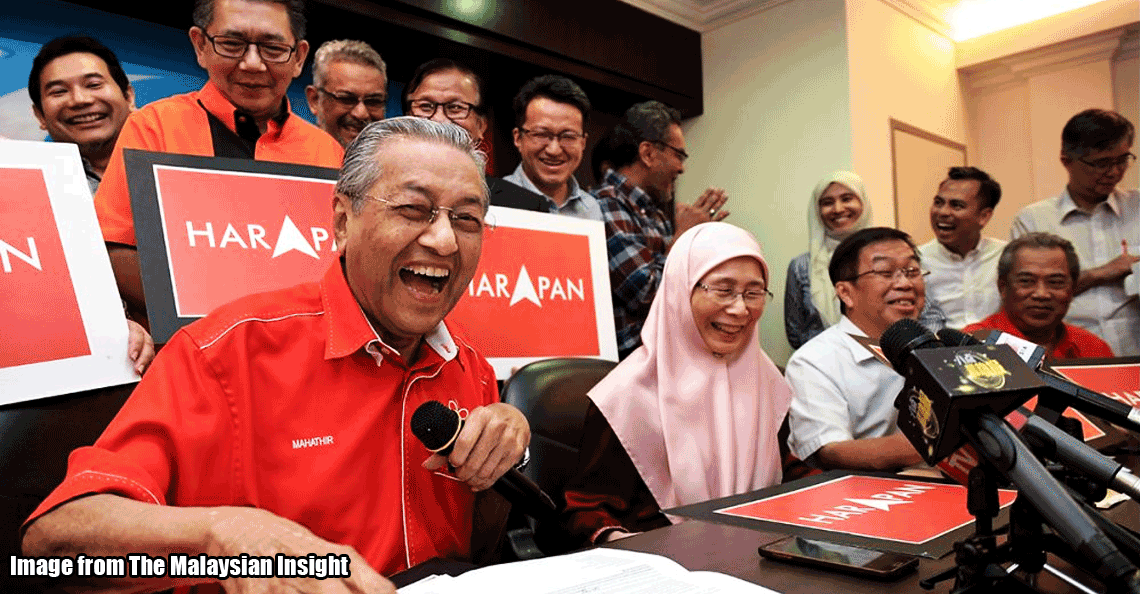A week before GE14, one man predicted the results almost perfectly, and people laughed.
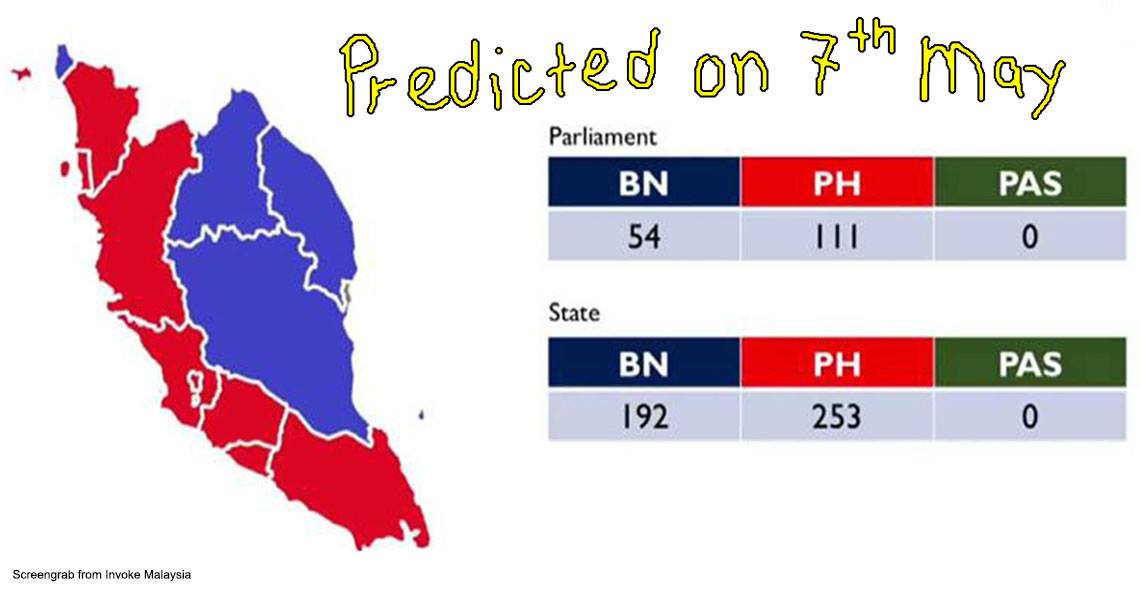
- 1.3KShares
- Facebook1.2K
- Twitter20
- LinkedIn25
- Email19
- WhatsApp71
Ok… so after the mass celebrations over the weekend, reality is setting in.
Tun Mahathir’s recent announcement on the three Cabinet ministers was questioned by Parti Keadilan Rakyat‘s (PKR) vice-president, Rafizi Ramli, who claimed he “bulldozed” the nominations (yes, he said bulldoze). His actions angered many people who have asked PKR to “get themselves together” on social media:
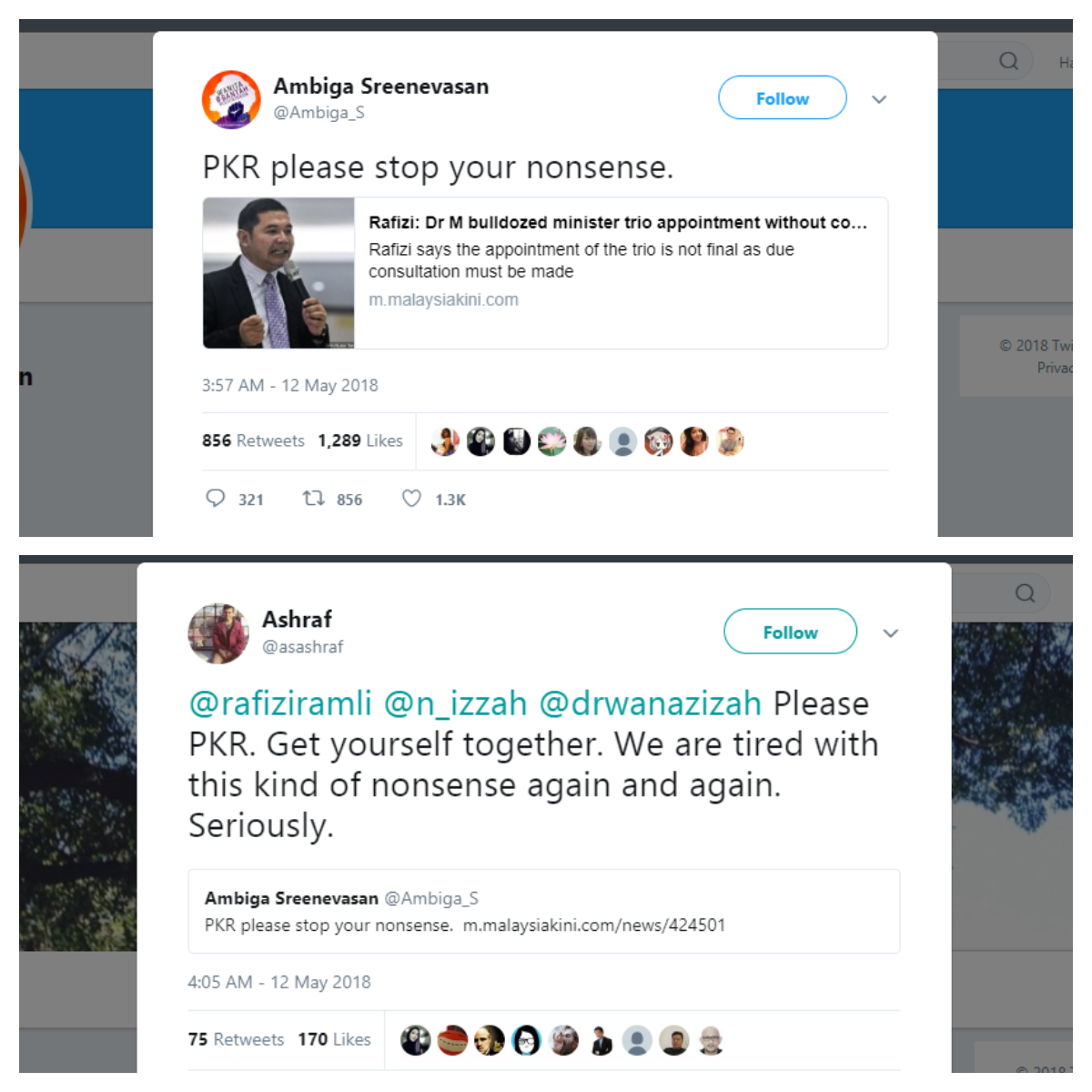
But, this isn’t the first time Rafizi has kena from social media. In fact, earlier this month before GE14, he kena for something else entirely…. his predictions for who would win the election. He predicted a simple majority win for coalition Pakatan Harapan (PH) that would allow them to form a new government – 54 seats for BN, 111 for PH and 0 for PAS in the Peninsula.
The public called him delusional and “syok sendiri” despite predicting based on the data collected from surveys conducted under his think-tank organisation, Invoke Malaysia.
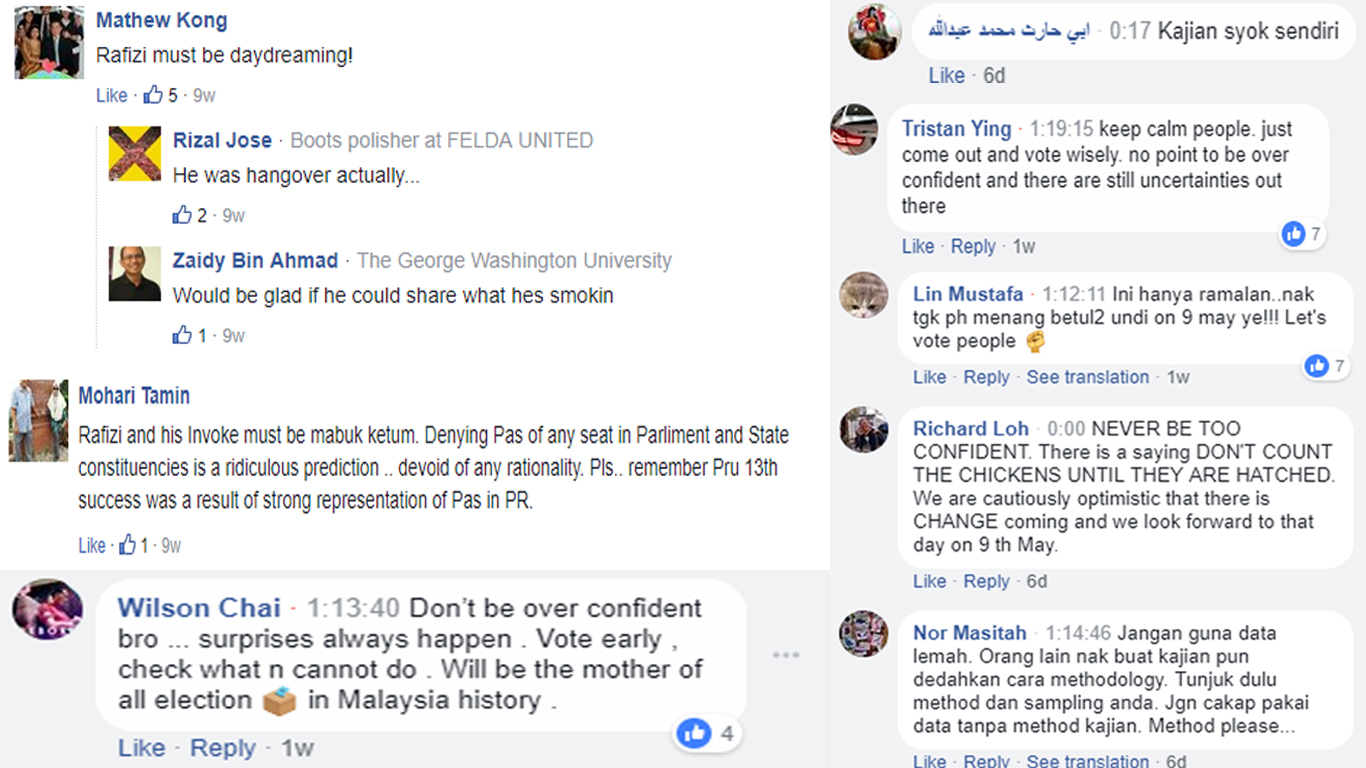
Of course, we all know how THAT turned out – Malaysia has a new government! BUT, did all of Rafizi’s predictions pan out? We took a closer look.
1. He underestimated PAS, but kinda compensated with something else.
The results of the survey conducted by Rafizi showed how PAS would not win any seats in GE14. In the final result, PAS won a total of 18 Parliamentary and 90 State seats besides taking over Kelantan and Terengganu. So how did Rafizi get it so wrong?
Well, it seems he kinda overestimated BN. Rafizi mentioned how PAS would lose all their seats to BN including those in Kelantan and Terengganu. However, it turns out that these folks weren’t so much keen on voting for Pakatan as they were in simply kicking BN out. So PH didn’t lose too badly from these predictions.
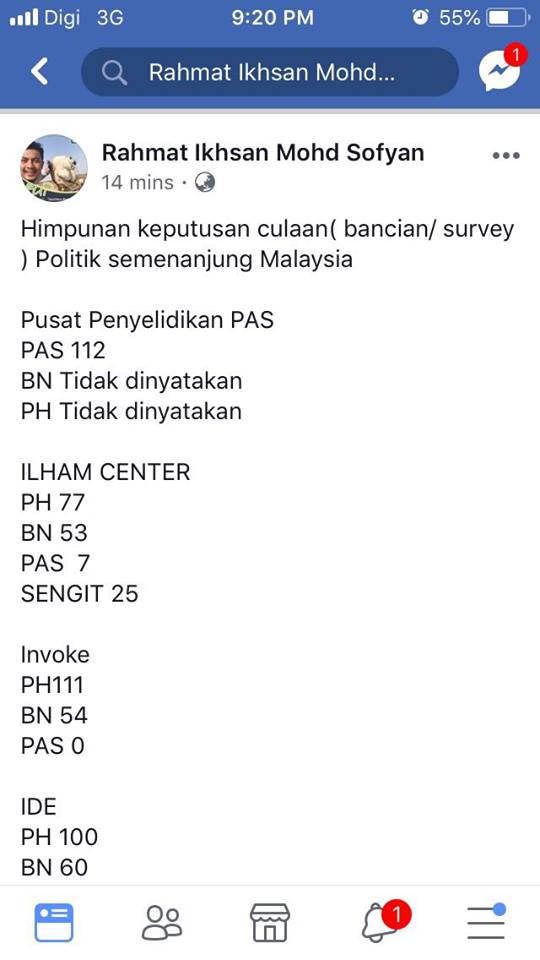
Surprisingly, Pusat Penyelidikan PAS is a real thing, and they predicted anywhere between 40-112 seats out of the 100 they were contesting in. With PAS contesting in so many seats this time, Rafizi also predicted PAS to make Pakatan’s job harder by splitting the votes. Pakatan’s entry in these two states would ironically benefit BN as it would split those anti-BN votes, ‘hurting‘ PAS.
“Since PAS and PH’s Malay voters are about 29.5% and 28.7%, they will go neck-to-neck, splitting the votes entirely, giving more votes to BN.” – Rafizi’s predictions on Kelantan and Terengganu
As we mentioned previously, Rafizi’s predictions about PAS were a total loss. The result showed how PAS’s support in Kelantan and Terengganu were still strong. The party won 15 Parliamentary and 59 State seats in Terengganu and Kelantan. In addition, PAS won at least a seat in most states!
“Fence-sitters resorted to tactical voting in the last week of campaigning; throwing their support behind PAS (instead of PH) because realistically speaking only PAS was strong enough (as the second party in Kelantan and Terengganu) to defeat BN in those states.” Rafizi stated.
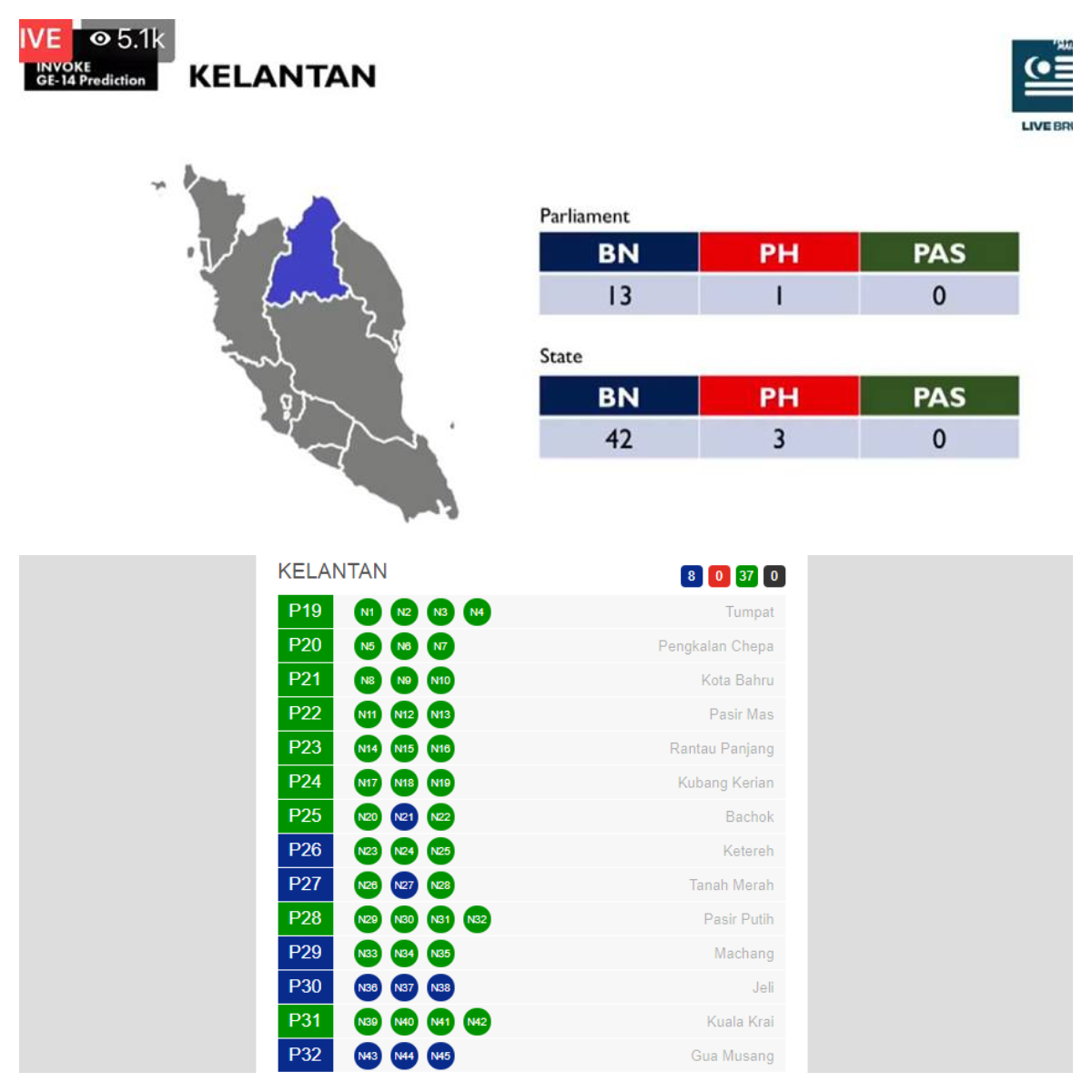
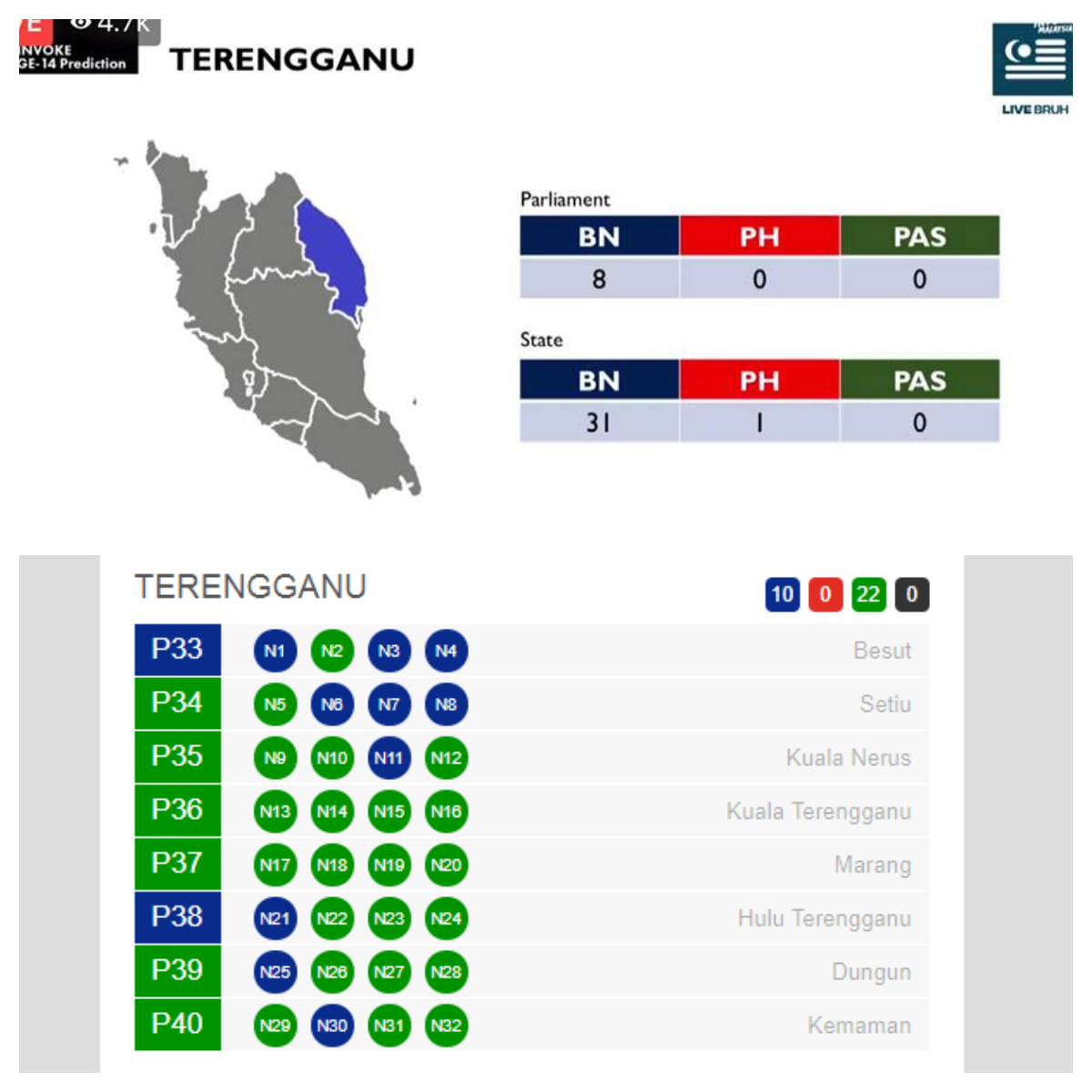
One interesting trend to note about PAS’s prediction was the fact that out of all the inaccurate predictions Rafizi made about PAS, he was actually accurate about PAS losing its seats in Melaka and Negeri Sembilan.
2. These predictions didn’t even include East Malaysia, but again he underestimated them too
Invoke’s predictions were only made on 12 states excluding Sabah and Sarawak. When asked the reason behind this exclusion, Rafizi answered that due to the difficulty in obtaining the necessary data, they didn’t get to predict the GE14 outcomes for both states.
Rafizi considered that if PH can get 100 or more seats in Semenanjung, PH and its allies in Sabah and Sarawak only needed 10-15 seats to exceed the 112 seats to form a government. As a fair estimate, Rafizi estimated PH to win around the same number of seats from the previous election in Sabah and Sarawak, but it’s unclear if Warisan was included in that estimate. The actual result? 16. Yay one bonus! If plus Warisan? 24!
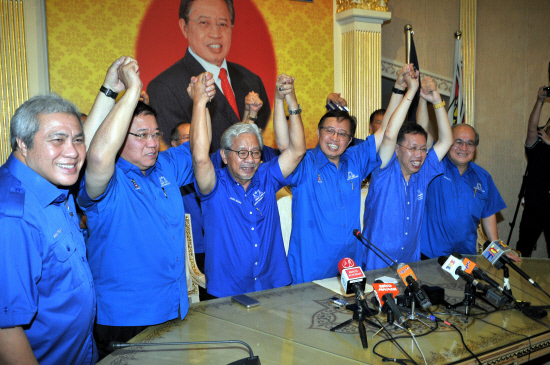
Aliran also predicted that if Rafizi was right about PH winning big in Peninsula, there will be a possibility that BN component parties might switch to PH component parties. Spoiler alert: this was exactly what happened especially in Sabah.
His loose prediction was that BN would take over Sarawak, which they did… by winning 19 Parliamentary seats, but he didn’t predict Sabah ending up as a hung state when both BN and PH tied with 29 State seats.
3. But INVOKE didn’t fare so well with state seats, because Indian aunties dun pick up their phone
Generally, Invoke’s data could predict which party would win each states correctly. However, when it specifically comes to the number of seats each party or coalition would win, the predictions varied from absolutely accurate like in Negeri Sembilan, somewhat accurate whereby either the Parliamentary or State seats were predicted correctly like in Perlis, inaccurate like in most states and a total loss like the predictions for PAS.

Most of these inaccuracies were mainly caused by the fact that the data excluded PAS from winning any seats. The results of GE14 differed from the prediction in such a way that in each states (except Melaka, Negeri Sembilan and Wilayah Persekutuan) PAS would win at least a seat which caused a, based on Rafizi as he presented the data, ‘spoil’ or split in the amount of votes.
Two other possible reasons that might contribute to these inaccuracies would be randomness and the level of bias of the sample. In terms of randomness, Invoke had to make sure that the sample covered a diverse group of Malaysian. Rafizi mentioned that some difficulties they faced was getting data from Indian ladies aged 60 and above who lives in a Malay majority, rural area like Kuala Terengganu.

Since the survey was conducted via phone call, the strength of bias determined the probability of the respondents picking up those calls (in this case, the probabilities were very low). Rafizi mentioned that two possible bias would be BN supporters who wouldn’t pick up their phones upon hearing the word Invoke (cos they’re the Opposition) and Chinese voters who assumed that the survey was conducted by the government.
Although these issues might have caused inaccuracies in the data as compared to the actual result, Rafizi noted that both factors especially the strength of bias would be a conservative advantage for PH.
Other than that, it is interesting to note that…
3. BN was expected to lose some of its ‘hot’ seats
Rafizi predicted that BN would win in Perlis, Pahang, Terengganu and Kelantan. However, BN only won in Perlis and Pahang.
In addition to that, Rafizi also predicted that BN would lose some of its ‘hot’ seats. Most of the predictions on these ‘hot’ seats were accurate. For example, the loss for MCA president Datuk Seri Liow Tiong Lai in Bentong, Pahang, and a defeat for MIC president Datuk Seri Dr S Subramaniam in Segamat, Johor. PH won both seats through Wong Tack and Dato’ Seri Dr. Santhara respectively.
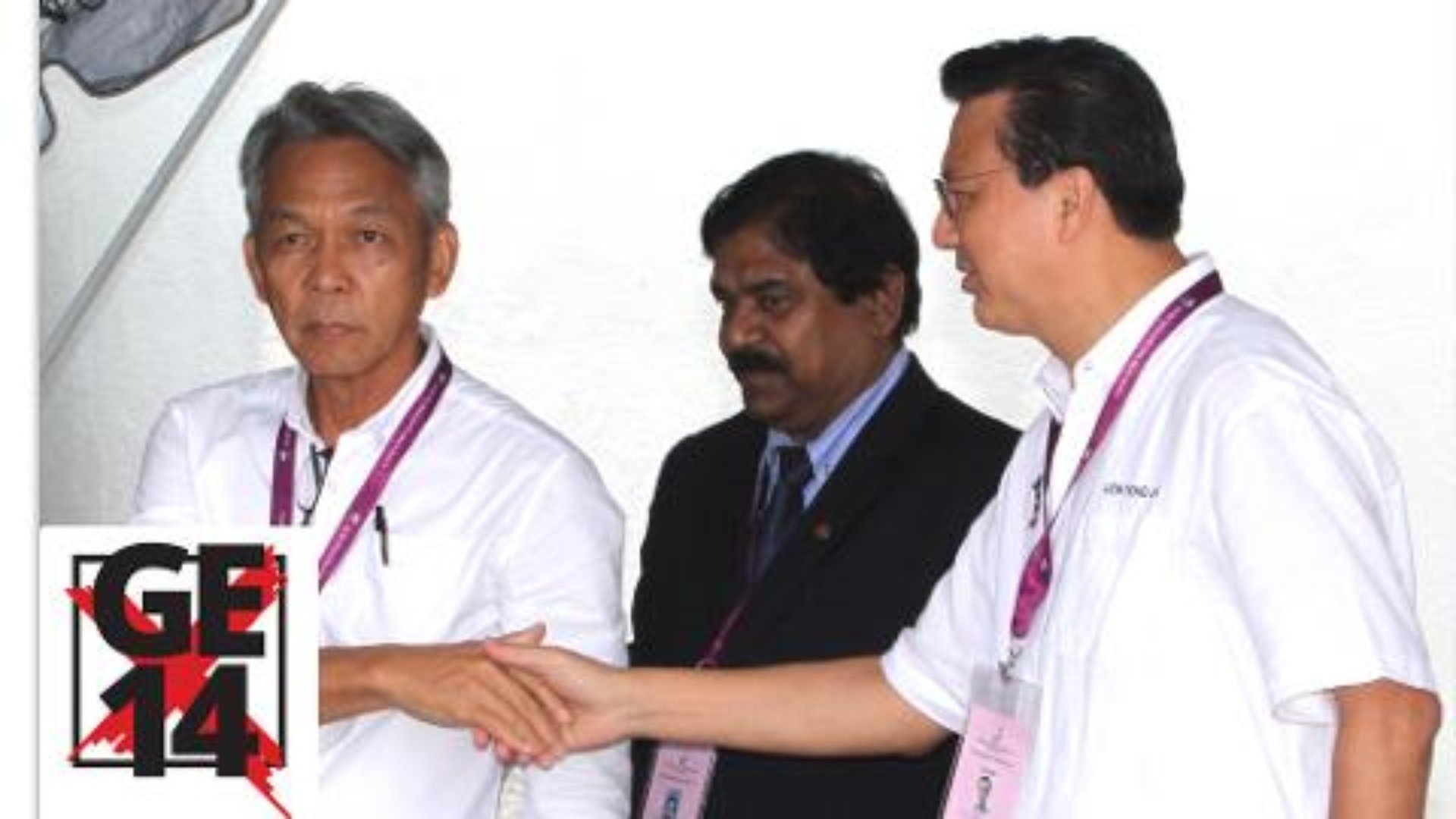
However, there were TWO MISSES on these predictions. Based on the survey conducted, Rafizi presented how UMNO vice-president, Datuk Seri Hishammuddin Hussein would lose his seat in Sembrong, Johor to Pakatan’s Onn Abu Bakar. However, this prediction was a miss as he won that particular seat.
Another missed prediction was when Rafizi predicted that BN’s Datuk Seri Dr Wee Ka Siong would lose his seat in Ayer Hitam, Johor, where he faced Pakatan’s Liew Chin Tong and PAS’s Mardi Marwan. GE14 results proved his prediction wrong when Datuk Seri Dr Wee Ka Siong won this seat.
In addition, the data also showed that…
5. His predictions on PH’s win were reliable after all
Based on the surveys conducted, Rafizi predicted how PH would win seven states including Kedah, Perak and Wilayah Persekutuan with 111 Parliamentary and 253 State seats.

Although the margin error was said to be around 3-4% for each states, we found out that the data were pretty accurate. In fact, he also accurately predicted the amount of seats PH won in Wilayah Persekutuan (11 Parliamentary seats) and Negeri Sembilan (5 Parliamentary and 20 State seats).
Apparently, Rafizi believed that there was a correlation between the drop in Barisan Nasional’s (BN) Malay support and the increase in the number of undecided voters that might be the causing factor to this win. He noted that 50% of fence-sitters would likely vote for PH although they would prefer to not tell who they would vote, other profiling questions pointed out how they were most likely PH supporters.
Mixed seats were also probably another factor that contributed to this win as there were 29 of these seats. It was said that these type of seats besides Chinese-majority and urban Malay-majority seats were favourable to PH. Tun Mahathir’s comeback in Kedah might also be another factor.
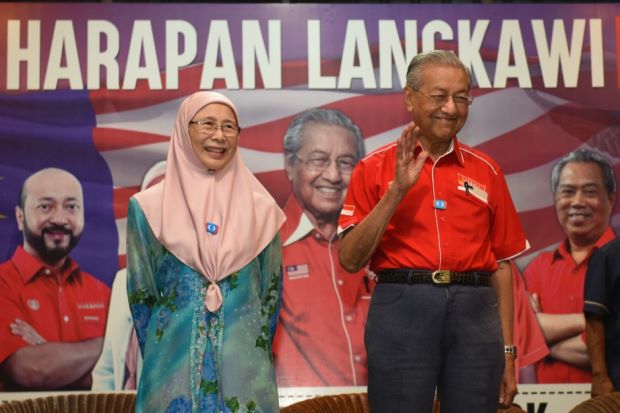
“On record, Invoke was the only pollster that consistently predicted a PH win from January 2017 onwards.” – Rafizi said in a statement.
So how did they manage to predict all this?!
They surveyed A LOT of people for A LONG time

In an interview, Rafizi said that although Invoke might be conceptually similar in terms of doing what data analytics company Cambridge Analytica does, both organisations worked differently.
“The biggest issue with Cambridge Analytica is that it illegally data-mined. That’s not what we do here. What we do here are surveys and from there we do regression and other data analysis to profile potential voters. Then we pick one [group] from a constituency, whom we think are fence-sitters, and then we submit them to Facebook [for micro-targeting]. It’s very different and we don’t actually know who is who.” – Rafizi told The Edge Financial Daily
Invoke have been conducting surveys through phone calls, social media and canvassing by volunteers among others since 2016. The purpose of the survey was to predict how Malaysians would vote during GE14. When we wrote about them (almost a year ago), they managed to phone 104,340 respondents which made up 1.25% of those Invoke were trying to get contact with.

The recent prediction Invoke made, on the contrary, was based on surveys conducted within 2 weeks, starting from the Nomination Day, involving 11,991 respondents, who were selected through random stratified sampling and weighted according to the population for each state. The surveys covered 24 strata of voters, covering different races, age groups, genders, and geographical locations, to make sure that the data from the ground doesn’t only cover one group of people but a diverse group of Malaysians.
Since the predictions made from the data collected were pretty accurate to a certain extent, this methodology could probably be a baseline for other party to analyse Malaysians voting behaviour in the future. If you would like to support this cause, you can donate to Invoke Malaysia.
- 1.3KShares
- Facebook1.2K
- Twitter20
- LinkedIn25
- Email19
- WhatsApp71

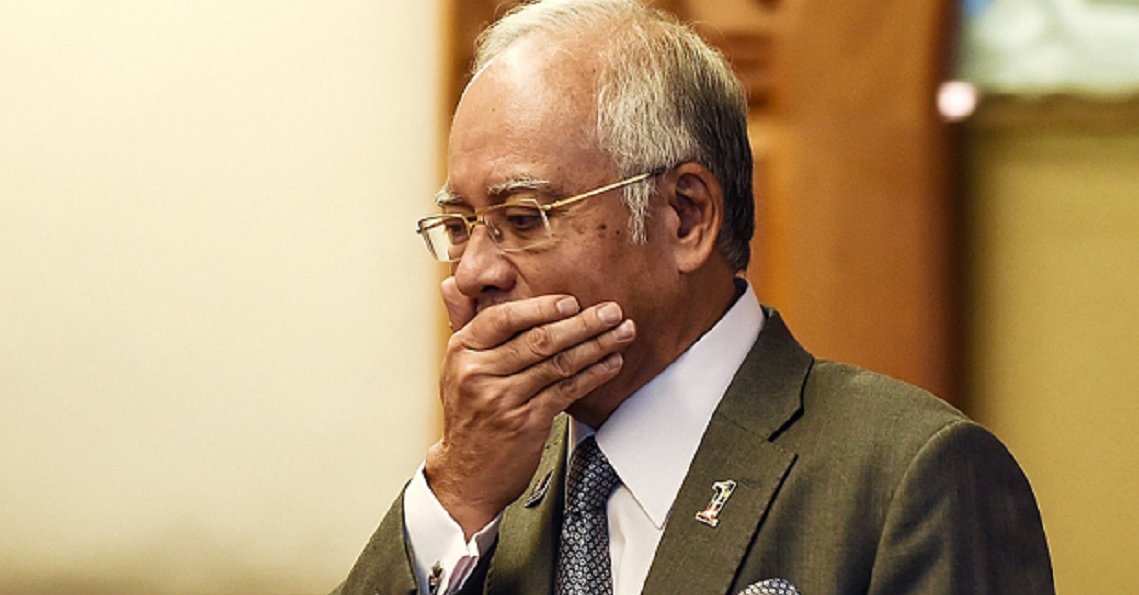

 So some of you might have heard
So some of you might have heard 